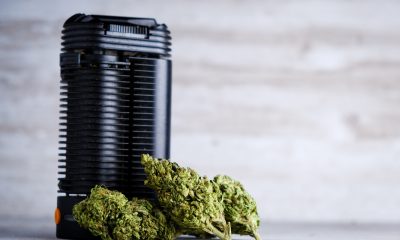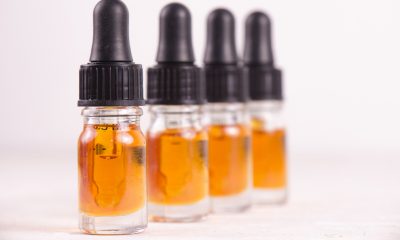The FDA’s plan to seek “real-world data” on CBD has been criticised by some, but UK regulators could learn something from across the pond, according to one industry expert.
This month, FDA officials provided an update on cannabidiol and unveiled plans to “fill in the current gaps” in its understanding of CBD products.
The report has received criticism from the US CBD sector; however, a British CBD advocate says the UK’s Food Standards Agency (FSA) has something to learn from the FDA’s approach to regulation.
Penned by the Commissioner of Food and Drugs, Stephen Hahn, and Principal Deputy Commissioner, Amy Abernethy, the announcement stated that the FDA needs “better” data to grow its limited understanding of the safety profile of CBD and other cannabis-derived compounds.

The authors wrote: “We still don’t have clear answers to important questions such as what adverse reactions may be associated with CBD products and what risks are associated with the long-term use of CBD products.
“Better data in these areas are needed for the FDA and other public health agencies to make informed, science-based decisions that impact public health.”
Hahn emphasised that filling in the knowledge gaps will not be a “trivial exercise” and will require “high-quality data analysed using robust methods”.
Setting out a framework which aims to utilise real-world data to answer outstanding questions, Hahn announced a number of guiding principles relating to future research projects and data collection which the FDA will follow moving forward.
Following the removal of “hemp” from the definition of “marijuana” under the Controlled Substance Act in 2018, the US CBD industry has skyrocketed, however, as the sector expands, regulations have lagged behind.
The Council for Responsible Nutrition (CRN), a trade association for the dietary supplement and functional food industry, criticised the report saying it “misses the point entirely”.
“[The] notice is nothing more than an end-of-Administration desk-clearing exercise from an FDA that has failed to lead in this crucial policy area,” president and CEO of CRN, Steve Mister, said in a statement.
“Because of the FDA’s failure to act, the public continues to be exposed to possible harms by a wild-west market that continues to expand without meaningful regulatory bounds.
“Responsible manufacturers of dietary supplements containing CBD – who are dutifully abiding by those regulations and incurring the costs of doing so – suffer as their products are sold alongside products that may or may not contain CBD, may contain THC, make illegal disease claims, or contain unsafe adulterants.”
Speaking to Cannabis Health, president of CLEAR Cannabis Law Reform, Peter Reynolds described the FDA statement as “massive overkill”.
“It is exactly the same as the FSA and the EU in that, as far as I know, there is no evidence at all anywhere in the world of anyone ever coming into any significant harm from taking CBD as a food supplement,” Reynolds said.
But despite these criticisms, he believes the FSA in the UK has something to learn from the FDA in its treatment and regulation of cannabis-based products.
He continued: “When they indicated that they were looking at regulation, the FDA immediately went out to a public consultation, where they asked people what their views were. And not just people in the industry, but consumers as well.”
Last year, the FSA revealed that companies producing CBD products would be required to apply for novel food status by the 31 March 2021 in order to continue selling its products.
The decision was faced with backlash from industry advocates, including Reynolds, who believes the “pointless” regulations will put many small companies out of business.
“You have to ask why on earth people being made to invest a quarter of a million pounds in these utterly pointless novel food applications when there’s no evidence of there being any danger from CBD.
“There’s a lot wrong with American democracy, clearly. But on the other hand, it does seem to be working out right in the end.”

 Industry6 months ago
Industry6 months ago
 News6 months ago
News6 months ago
 News6 months ago
News6 months ago
 News6 months ago
News6 months ago
 Science5 months ago
Science5 months ago
 Industry5 months ago
Industry5 months ago
 News6 months ago
News6 months ago
 Patients6 months ago
Patients6 months ago













